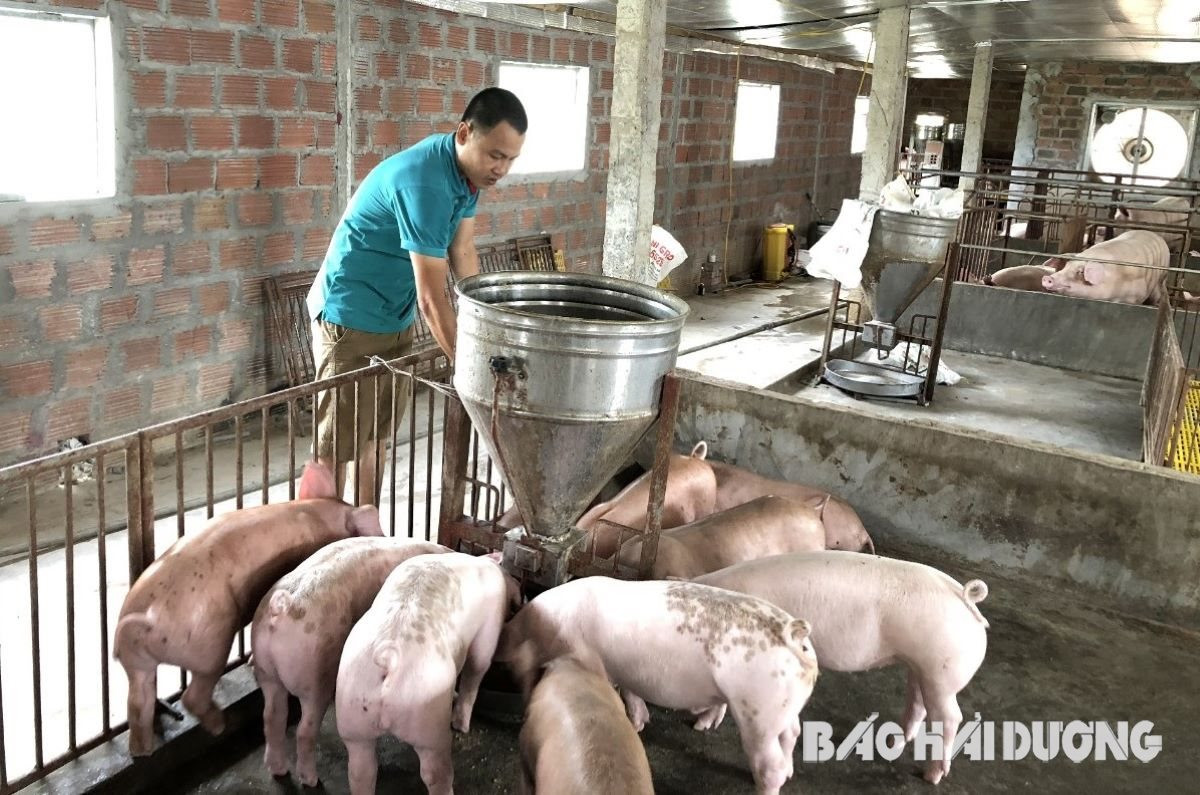In recent times, livestock diseases have remained complicated, infectious diseases are at risk of re-emerging, especially in areas with small-scale livestock farming and low vaccination rates, causing great losses to livestock farmers.

Currently, farmers are restocking to meet the year-end food demand. In the current complicated epidemic conditions, farmers should do the following well:
- For breeding animals: When buying breeding animals, you need to go to breeding facilities that ensure disease safety, clear origin, and are fully vaccinated. Absolutely do not buy breeding animals in places where an epidemic has just occurred. During transportation, it is necessary to arrange specialized means of transportation. Before and after transporting breeding animals, the means of transportation must be absolutely disinfected. Imported breeding animals must be quarantined for at least 2 weeks to monitor their health status. Record all information about the breeding animals in the breeding book, such as the date of import, address of the place where the animals were issued, vaccination schedule, etc.
- Regarding food: The source of raw food for livestock farming is well controlled to ensure quality and no pathogens. Do not feed uncooked human leftovers. When importing food and raw materials, they must be stored in a separate warehouse and not placed in rows of barns.
- For livestock pens: The livestock pens need to have a fence system, with a separate boundary between the livestock area and the human living area, and not raise many species at the same time. Regularly and strictly control people and vehicles entering and exiting the pen.
- Cleaning and disinfection: Daily, clean inside and outside the barn; collect and treat all garbage and waste for periodic treatment once a week. When visitors or traders enter and exit the farm, people, vehicles and barns must be disinfected. Record all information related to disinfection in a book for monitoring and inspection.
- For barns where an epidemic has just occurred: Sweep, collect all garbage, livestock waste, manure, bedding and destroy by burning, mechanically clean the barn and farm grounds; spray disinfectant once a day with chemicals such as Benkocid, Omnicide, Han Iodine, Virkon, Povi dine according to the manufacturer's instructions. Sprinkle lime powder or spray 1% lime solution on the entire surface of the barn such as the floor, walkways, corridors, sewers, farm entrances... ensure that the surface is covered with white lime. Disposable livestock tools and protective clothing should be destroyed by burning.
Bushes and weeds in the camp and surrounding areas must be cut down and burned completely. Drains must be dredged and cleared, lime powder must be spread over the entire surface of the drains, and measures must be taken to kill flies, mosquitoes, rats and other insects.
- Waste treatment: It is necessary to have measures to collect and treat waste suitable for livestock farming conditions by solutions such as using biogas systems, composting or using biological bedding. When livestock die, destroy them by completely burning or burying them with lime powder, disinfecting according to veterinary regulations.
Regularly vaccinate and actively monitor livestock farms closely. When there are signs of unexplained illness or death in livestock, farmers should immediately report to veterinary agencies and local authorities to coordinate in finding the cause of the disease.
NGUYEN MINH DUC (Department of Animal Husbandry and Veterinary Medicine of the province)